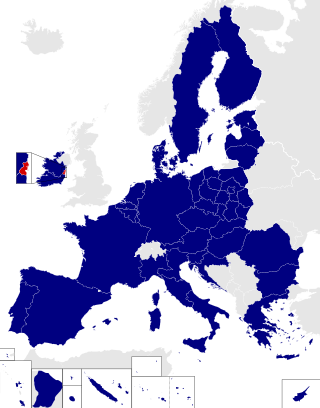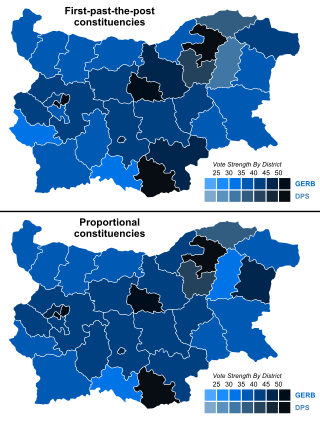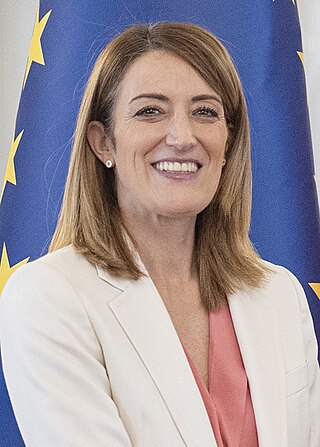Related Research Articles

The politics of Bulgaria take place in a framework of a parliamentary representative democratic republic, whereby the prime minister is the head of government, and of a multi-party system. Executive power is exercised by the government. Legislative power is vested in both the government and the National Assembly. The Judiciary is independent of the executive and the legislature.

A member of the European Parliament (MEP) is a person who has been elected to serve as a popular representative in the European Parliament.

Sergey Dmitrievich Stanishev is a Bulgarian politician who served Prime Minister of Bulgaria from 2005 to 2009. A member of the Socialist Party, which he led from 2001 to 2014, he later served as Member of the European Parliament from 2014 to 2024. Stanishev was also the President of the European Socialists from 2011 to 2022 and a Member of the National Assembly from 1997 to 2005 and from 2009 to 2014.
The history of Bulgaria from 1990 to the present is the period of Bulgarian history that begins after the fall of Communism and the transition to a market economy.

Dublin is a European Parliament constituency in Ireland. It elects 4 Members of the European Parliament (MEPs) using proportional representation by means of the single transferable vote.

Colm Burke is an Irish Fine Gael politician who has been a Teachta Dála (TD) for the Cork North-Central since the 2020 general election and has served as Minister of State at the Department of Health since 2024. He served as a Senator for the Industrial and Commercial Panel from 2011 to 2020, Member of the European Parliament (MEP) for the South constituency from 2007 to 2009 and Lord Mayor of Cork from 2003 to 2004.

Parliamentary elections were held in Bulgaria on 5 July 2009. With 40% of the vote, the decisive winner of the elections was the established in 2006 personalistic party of Boyko Borisov, GERB. The Socialist Party, in power before the election, was in second place, with around 18%. Оnce-ruling National Movement Simeon II did not cross the 4% threshold and won no seats. The turnout was 60.6%, one of the lowest ever. Following the election, GERB leader Boyko Borisov became prime minister. Just like all the previous parliamentary elections since the fall of communism, the government was not re-elected.

Roberta Metsola is a Maltese politician who has served as the president of the European Parliament since January 2022. She is a member of Malta's Nationalist Party (PN) and the European People's Party (EPP).

Kezia Alexandra Ross Dugdale is a Scottish former politician who served as Leader of the Scottish Labour Party from 2015 to 2017. A former member of the Scottish Labour Party and Co-operative Party, she was a Member of the Scottish Parliament (MSP) for the Lothian region from 2011 to 2019.

Radan Milenov Kanev is a Bulgarian politician who is currently a Member of the European Parliament. A member of the DSB party, which he led from 2013 to 2017, he previously served as Member of the National Assembly from 2014 to 2017.

Alun Craig Williams is a British politician who was Parliamentary Private Secretary to the Prime Minister from October 2022 until June 2024. A member of the Conservative Party, he was the Member of Parliament (MP) for Cardiff North from 2015 to 2017, when he was defeated for reelection by the Labour Party's Anna McMorrin. In 2019, Williams was elected as the MP for Montgomeryshire, but lost the seat in the 2024 general election.
References
- ↑ Mariya Gabriel was elected but she opted to stay as European commissioner.
- ↑ Mustafa Karadaya was elected but he did not take over his seat. Mihaylova resigned on 18 June 2024.
- ↑ Delyan Peevski was elected but he did not take over his seat. Alieva-Veli resigned on 18 June 2024.